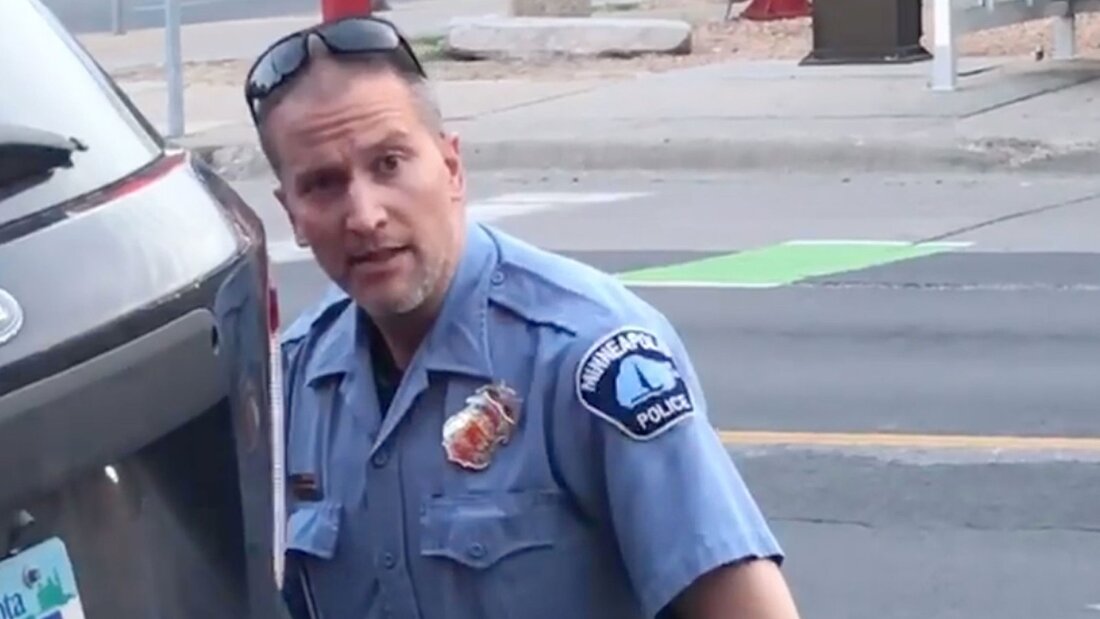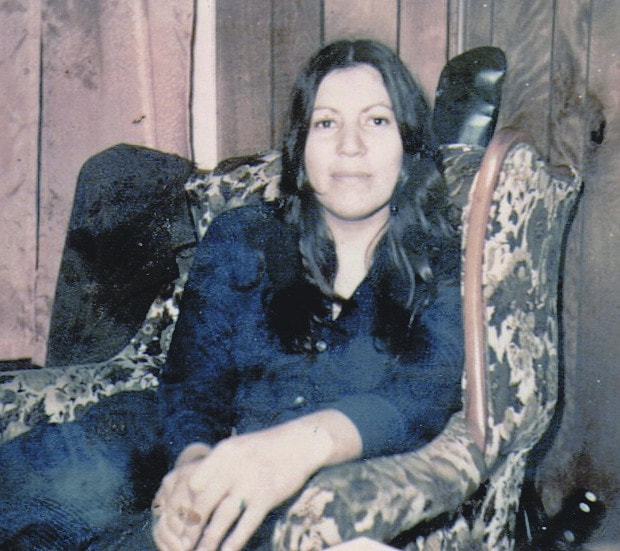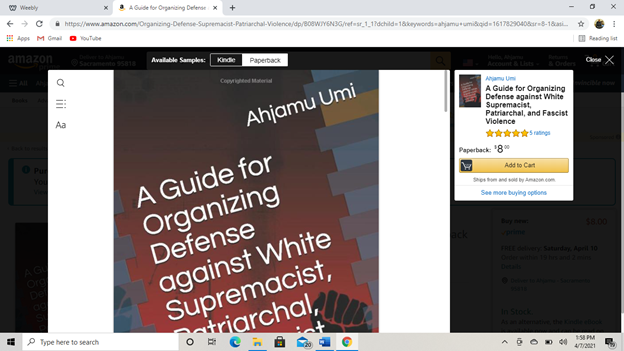If you study the news reports coming out about the verdict from African (Black) news sources (and of course the dominant capitalist/white supremacist media sources), the narrative being presented is that this verdict is some “piece of justice” for us, a people long denied any semblance of justice. Those sources are also consistently echoing the ridiculous theme that since the Floyd family apparently sees the verdict as justice, that arbitrarily has to be the defining factor in the how the verdict must be seen by everyone.
The “piece of justice” talking point is being promoted by these African voices within the bourgeoisie media, people like Joy Reid and Michael Steele for example, as a clear tactic to appeal to the long suffering heart strings of the African masses and those who empathize with our condition. To the untrained eye, this talking point would seem to be rooted in common sense. From Emmet Till, to Medgar Evers, to Cynthia Wesley, Carole Robertson, Addie Mae Collins, to Denise McNair (Birmingham Church bombing), to the Rodney King beating, Latasha Harlins murder, Oscar Grant, all of the thousands of other police terrorism victims, and the thousands of lynched and otherwise terrorized Africans. After centuries of this ongoing trauma, these bourgeoisie voices are working overtime to appeal to your fatigue, fear, and strong and legitimate desires for peace by telling us that this was the victory we needed. And, to add the final layer of cement to this “analysis”, these people are pushing the emotionally charged closer statement that since the family says its so, it must be so because who would dare speak out against what the grieving family wants?
After 528 years of being bamboozeled and misled, pardon us if we take a completely different approach to this verdict than the repeated images of Africans on television celebrating, crying, hugging, and expressing raw emotions at the sight of a European police terrorist actually being convicted in a U.S. court of brutally taking the life of an African. The legitimacy of our emotions is unquestioned and the desire of the family to see the beast responsible for the murder punished is equally understandable, but if we are serious about justice, and not just feeling better about one situation in a sea of millions, than we would be completely ill responsible if we didn’t raise several critical points.
And, those points are the “piece of justice” talking point is full of so many holes that there’s more air in that jug than water. If I steal everything you have, keep you subjected for hundreds of years, and continue beating and oppressing you and your family members, the simple act of getting me up off of your head could seem like justice, but if we factor in the entire scenario of your exploitation of my existence, there is absolutely no way just having you stop and pay a price is ever going to equal justice. As Malcolm X said almost 60 years ago “if you stab me in the back and you take the knife out, that’s not going to heal the wound.” The verdict of Chauvin was the equivalent of taking the knife out. In many instances, doing so causes the wound to become worse as bleeding out often occurs once the weapon is removed. As Malcolm explained, the healing process requires addressing the hundreds of years of exploitation and the conditions that period created in which the current reality is just a snapshot of the oppression, not the definition of it. In other words, even with the Chauvin verdict, and even if he’s sent away for life in prison, that does nothing for Breanna Taylor, Eric Garner, Sandra Bland, etc., etc., etc. And, these bourgeoisie voices clearly have the intellectual capacity to recognize and understand that last point, but what you have to understand about the African petti bourgeoisie and bourgeoisie is the role they play in this society. Their job is to serve as the buffer class between the African masses and the capitalist ruling classes. Their responsibility, and the reason they have been afforded their position, is to ensure that as house slaves, they keep the field slaves under control. So, its always their job to pour sand on the fire. The way they are doing that in this instance is to tell us that despite the overwhelming consistency of injustice that we are consistently forced to endure, we should be satisfied in some way with this one “piece of justice.” They tell us this not because they even believe it to be true. They tell us this because their job is to prevent us from rebellion against the capitalist system. And, they are entrusted with their high profile voices and the subsequent rewards provided to them for serving their masters to make sure there are no slave revolts. This is the reason why you will never hear any of them saying the things being said here and even if some of them make an attempt to sound this way (in an effort to present some level of credibility in the process), they always circle back to the answers lying somewhere within the capitalist system that keeps us oppressed.
Regarding the question of the families, at first glance, this sounds so personal. So, inappropriate to comment about, but in truth it is not. Its not because the only reason you know about George Floyd is because the masses of people said what happened to him was unacceptable. As a result, justice for him can never just belong to his biological family because they alone did not create the conditions that led to his case being protested all over the world. They did not create the leverage that certainly played a significant role in creating the conditions where Chauvin could be convicted in the first place. Since the people claimed George Floyd and made him the poster child of the larger movement for justice against police terrorism against the African masses, he now belongs to the people, not just his family. Another way of explaining this phenomenon is the people claimed him because collectively, they understand that his murder was larger than just him. The forces who support capitalism always want you to believe that his murder was a personal reality for him and his immediate family. They want to tell you that because of this, whatever he was doing in his personal life is relevant to the conditions that led to his death, but the people know better. They know that last spring, they were sick and tired of police terror against the African masses and this is proven by the fact that no one can dispute that had it been Jeff Floyd, or Marcus Floyd, or William Johnson, or Tabitha Williams, who Chauvin leaned into with his knee uncaring, unconcerned, while the person underneath screamed for mercy, the same resulting movement would have more than likely still resulted. And, no one can really dispute that because if that was not true, protests would never have happened before George Floyd and they would never happen after him. So, we can never accept this bourgeoisie narrative that the family is the deciding factor because the family didn’t make his name for him. Its like in 1996 when I had the honor of bodyguarding Dr. Betty Shabazz, the widow of Malcolm X. After much chiding by my comrades, I spoke to her and told her of the personal role Malcolm had played in my life since 1979. I told her that I had always considered him my ideological father and I asked her if my doing so was okay with her. She chuckled and told me that after all I had told her about her husband and my life, “he is your father regardless of what I would say. You have earned that!” I took that to mean Dr. Shabazz understood that her husband was not just her personal property. She knew that he belonged to people. Later, I read statements from her where she confirmed that her knowing people embraced her husband the way we do had provided her the comfort that had helped her survive the years after his assassination. By the same token, the people have earned the legacy of George Floyd and this is an important point because this is the only way to ensure that the legacy of his death (despite whatever nonrelated factors the forces of reaction want to try and make his death about) stays connected to our mass struggle for justice. Plus, the problem with centering these police shootings on just the biological families is most of the time, most of them, as well as the person killed by police, are not involved in our movement for African liberation. In fact, some of them are politically reactionary. As a result, they are often not prepared to respond to the tragedy in any way beyond the personal and emotional. That honors the collective component of our culture and our fight for freedom. Their responses, however manifested, are of course important, but much of the dysfunction within the movement that has resulted from people developing opportunist and often exploitative practices on the back of the movement is the result of this unscientific line of bourgeoisie thinking that family = movement.
The only thing that equals movement is people engaged in the organizing work to carry the struggle forward. And, for anyone keeping score over the last 528 years, we refuse to let our struggle for justice be reduced to one, two, 10, or even 100, convictions in 2021 and beyond. Just the fact that so much has to happen on our end to arrive at the slightest indication of doing the right thing is more than enough evidence for us to know that nothing short of the complete elimination of this backward capitalist system will bring us the actual justice we need and deserve. They can keep their “piece of justice.” Our people deserve the entire thing.




 RSS Feed
RSS Feed
